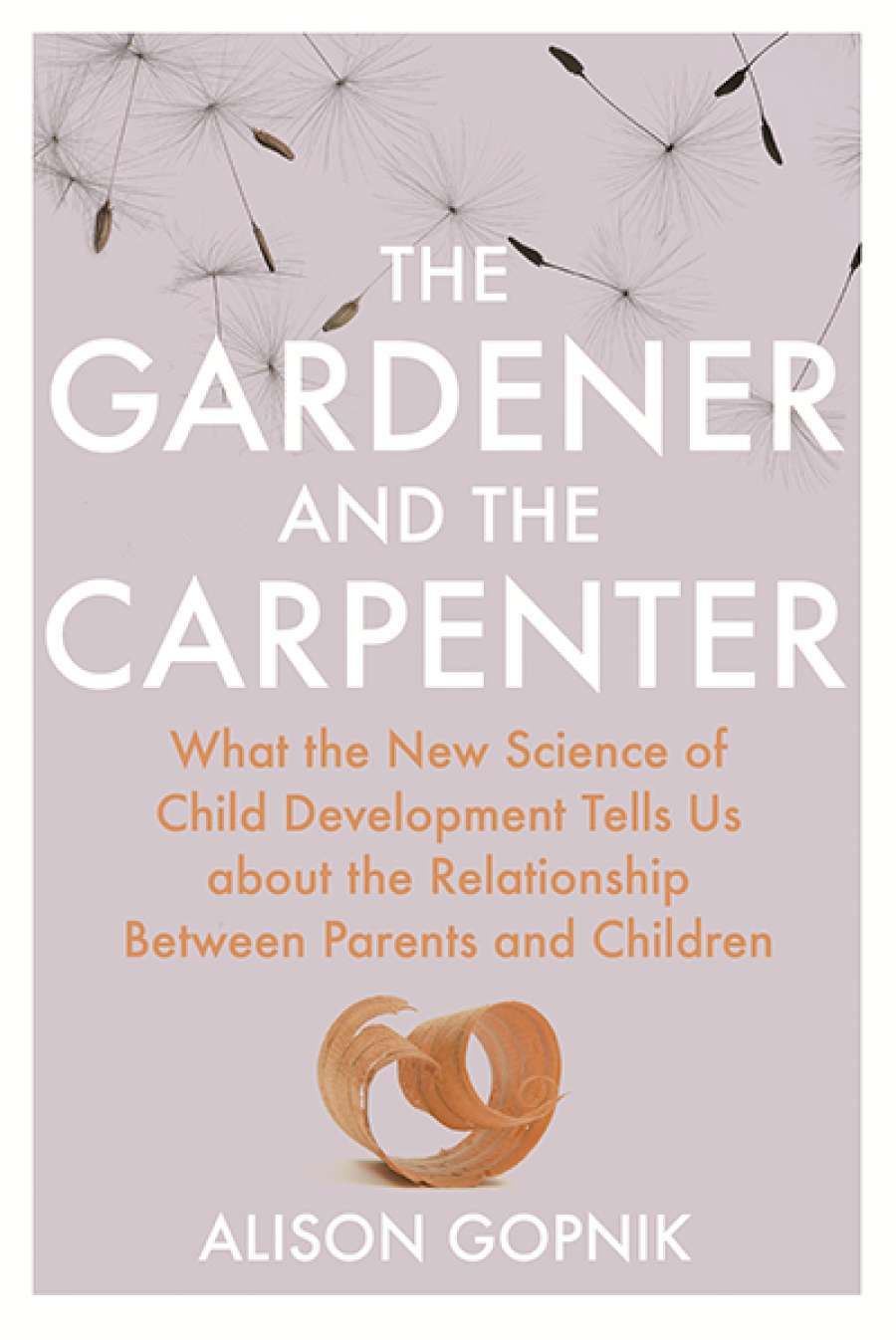
- Free Article: No
- Contents Category: Philosophy
- Custom Article Title: Tim Smartt reviews 'The Gardener and the Carpenter: What the new science of child development tells us about the relationship between parents and children' by Alison Gopnik
- Book 1 Title: The Gardener and the Carpenter
- Book 1 Subtitle: What the new science of child development tells us about the relationship between parents and children
- Book 1 Biblio: Bodley Head $42.99 hb, 303 pp, 9781847921611
Like the best analytically minded philosophers, Gopnik shows that noticing what we do with words goes a long way towards understanding why certain options and desires come to life for us. She sets out to show that there is an enormous difference between ‘parenting’ and ‘being a parent’, and that we have every reason to resist the former and cultivate the latter. The most significant reason is that parenting creates the very obstacles for children’s development that it intends to overcome. In a nutshell, Gopnik hopes to convince us that ‘parenting is a terrible invention’.
Gopnik explains the distinction between parenting and being a parent through a charming pair of images: a carpenter and a gardener. A carpenter is someone beholden to the idea of parenting as a project that is directed toward crafting a child into a particular kind of adult. Perhaps a successful or happy adult. They study the parenting literature for the right blueprints, tools, and instructions, and then they get to work.
If the villain of Gopnik’s book is an activity-hungry kind of parenting, who is the hero? In a word, the hero is mess. Mess is good. Deeply good. A gardener is a parent who respects the mess of childhood. Gopnik argues that gardeners learn to accommodate randomness, spontaneity, and variety in their garden, not to eradicate it. The good gardener creates a protected, stable, and safe environment for the mess of nature to take form and flourish. A gardener doesn’t make the plants, she creates an environment that lets the plants themselves flourish.
To my lights, at least, this idea sounds like it is on the right track. The brilliance of Gopnik’s book is to be found in the arguments she gives to support her point. To convince us of the errors of parenting, Gopnik draws on research in developmental psychology. The overwhelming lesson is that our current best biological and evolutionary story about children’s development is that they thrive in the extended mess of childhood. Much of the empirical detail of this story comes from Gopnik’s own lab at Berkeley, and she recounts the fascinating results of this research in rigorous, sparkling prose.
One example of this type of argument is her work on the question of how children learn. The cliché is true: children are sponges. But they’re intelligent sponges who sensitively calibrate their credences in response to a suite of epistemic factors about, for example, a speaker’s confidence, counterfactual possibility, predictive power, and inductive grounds, without being taught these concepts. This research supports the idea that children are incredibly skilled at acquiring information from the world. They learn best by simply being allowed to learn, rather than being the beneficiaries of parenting techniques.
 Alison Gopnik (photograph by Kathleen King)
Alison Gopnik (photograph by Kathleen King)
The final chapter addresses the philosophical question, ‘Why have children?’ Although Gopnik draws on the work of L.A. Paul, I was left wishing this chapter had been longer. For instance, I would have loved to watch Gopnik tease out the implications of some recent work on the normative value of childhood by philosophers such as Tamar Schapiro and J. David Velleman.
Caring for a child is demanding. The central point of The Gardner and the Carpenter should come as a balm: we have good scientific reasons for believing that perhaps we’re making it a lot harder work than it should be.


Comments powered by CComment